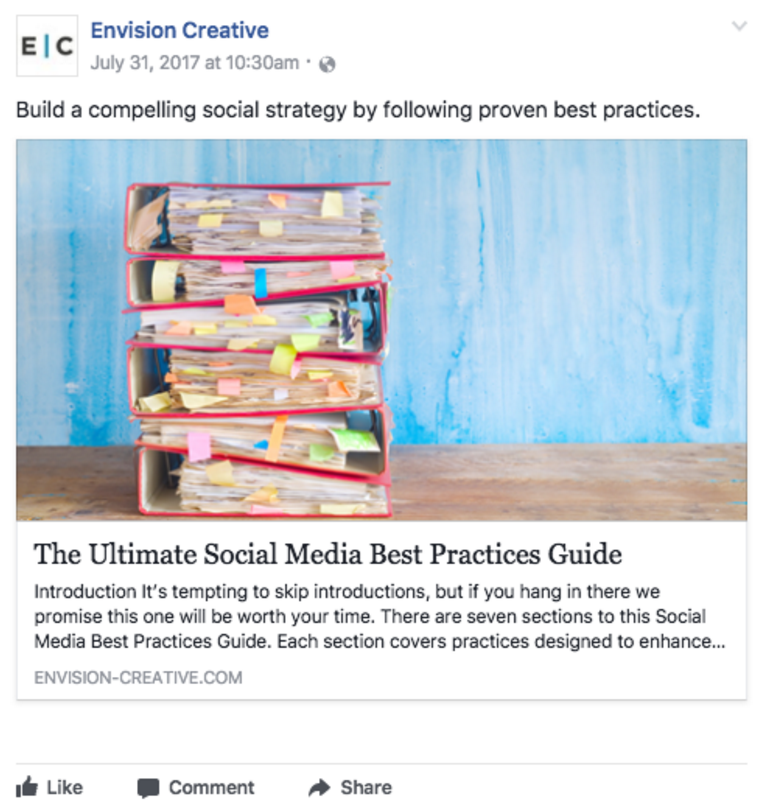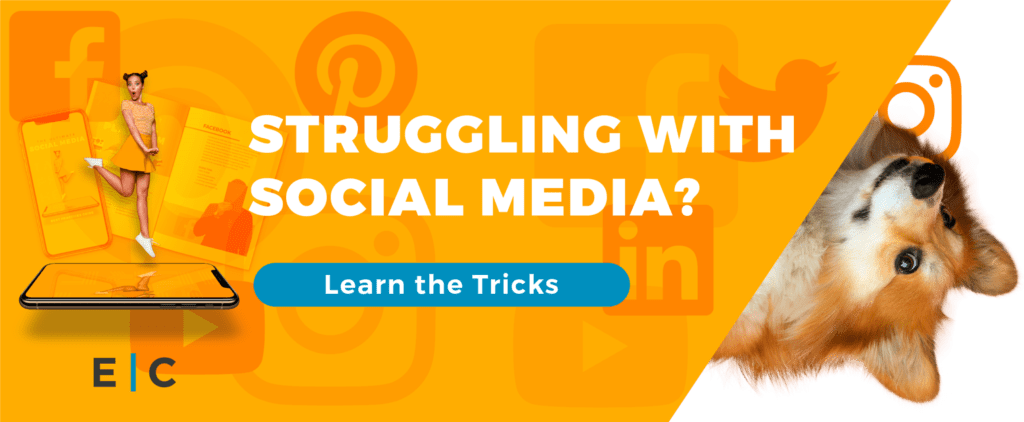Facebook marketing is no bed of roses. Many of the best marketers have ventured onto the social giant with high hopes, only to be faced with defeat time and again. There’s a million different reasons why they fail, but here’s a piece of information that could drastically improve your strategic approach: you don’t own your company’s Facebook page. Facebook isn’t like your website or your blog. You don’t control the platform so you can’t make the rules, you can only live by them and, occasionally, try to work around them.
Creating a Facebook Marketing Strategy
For the purposes of this blog post, I’d like you to think of Facebook as an extension of your lead-generation funnel and not just a social platform. Sure, everyone loves having thousands of Facebook followers on their page, but at the end of the day, you need a qualified audience that will convert into leads and customers.
1. Forget Practicing and Just Follow Best Practices
I have a personal motto that’s treated me pretty well in my marketing career: don’t start from scratch when you can learn from someone else’s experience. Picasso himself was a fan of using other people’s work to draw inspiration:
“Good artists copy, great artists steal.”
Ok, so maybe stealing is a bit too strong. While we’re not in the business of stealing, it’s always a smart idea to keep tabs on your competitors and see what’s working for them and what’s failing.
Your first step should be to create a list (mental, digital or physical, whatever works for you) of best practices that will dictate the steps you take to implement a successful Facebook strategy. Take a look at our social media best practices guide to get an idea of what you need to look for…or just copy our list. 😉
One of the best ways to discover successful Facebook strategy tactics is to navigate the many blogs that specifically deal with digital marketing and social media strategy. Molly Pittman over at Digital Marketer created an extensive blog post that detailed her findings after analyzing 440 Facebook ads. These are the types of posts that will help you formulate a rock-solid strategy. They’re based on reliable data and backed by extensive research and analysis.
2. Don’t Hit “Repeat”
When you share a link on Facebook, it automatically generates a preview of your link that includes an image (pulled from the source), title, and description. Easy enough, right? Yes…and no. It’s not enough to repeat the title of your link in the body of your Facebook post. That just look sloppy and lazy to your audience. Your copy needs to be unique from the title and should give an indication of the content your audience can expect to find.
For example: in the post below the top line of text is the copy you manually enter. The image, title and description below the title are automatically generated by Facebook when you paste in your link.

I could have just said, “Check out our Ultimate Social Media Best Practices Guide” and been done with it. But the title already says that. Focus on creating post copy that enhances the appeal of your content. Every line of text is a chance to engage with your target audience.
3. Refine Your Targeting
“Build a better mousetrap and the world will beat a path to your door”. We’ve all heard Ralph Waldo Emerson’s famous words before. Unfortunately, they’re false. If you use the same exact tactics as everyone else you’ll be just like everyone else. You need to implement smarter, more specific targeting to take advantage of a successful Facebook marketing strategy.
I’m a believer in using multiple “mousetraps” to appeal to multiple segments of your target market. What works for one segment doesn’t always work for another.
A few years ago, I worked on an advertising campaign for an acne treatment product. Our two main audience segments were teens who had acne and their parents. To reach parents, we appealed to their interest in the health and mental well-being of their teens. To reach teens, we spoke to their desire to look good, feel good, and have confidence.
Target each segment of your audience with custom messaging and pay attention to the details that will compel them to take your desired action.
4. “I’m In an Inbound State of Mind”
Are you playing the song in your head now? Inbound marketing is all about leveraging exceptional content that nurtures prospects into becoming customers. Here’s how HubSpot puts it:
“Inbound Marketing is the process of attracting the attention of prospects, via content creation, before they are even ready to buy; it’s one of the best and most cost-effective ways to convert strangers into customers and promoters of your business.”
So how can you integrate your Facebook marketing strategy with Inbound Marketing practices? Treat Facebook like a part of your lead generation funnel. Nick Unsworth believes there are four things you need to focus on for your Facebook strategy to complement your overall marketing:
1. Focus on one funnel at a time
2. Start with the end product first
3. Follow up
4. Rise, repeat and optimize
5. “Boost it. Boost it real good.”
We’re big fans of Facebook Promoted posts, also known as Boosted Posts. Post Planner has a great post by Scott Ayres that breaks down the benefits and process of boosting on Facebook.
Benefits of boosting your Facebook posts:
- Increase engagement
- Drive website traffic
- Guarantee visibility
- Target your ideal audience
6. The Campaign Trail
No Facebook marketing strategy is complete with discussing the benefits of Facebook advertising. A survey of 551 social media marketers around the world revealed that 95.8% believed Facebook gave them the best ROI.
Building a Facebook ad campaign is complicated at first, but the more information you have before starting, the better you chances of success will be. Start by going straight to the source on Facebook’s ad campaign FAQ page. You’ll find answers to almost all of your Facebook campaign creation questions there.
As you begin formulating your Facebook marketing strategy keep these six elements in mind:
1. Copy the methods used by your most successful competitors and find ways to improve them even more
2. Create unique messages that resonate with your audience
3. Specific, data-driven targeting can mean the difference between profit and loss
4. Facebook is a tool that supports your marketing efforts
5. Boosting posts is an easy way to break into Facebook advertising
6. Build a Facebook ad campaign that focuses on converting your target segments into customers
-FINAL(01-00)-White&Blue-01.svg)





